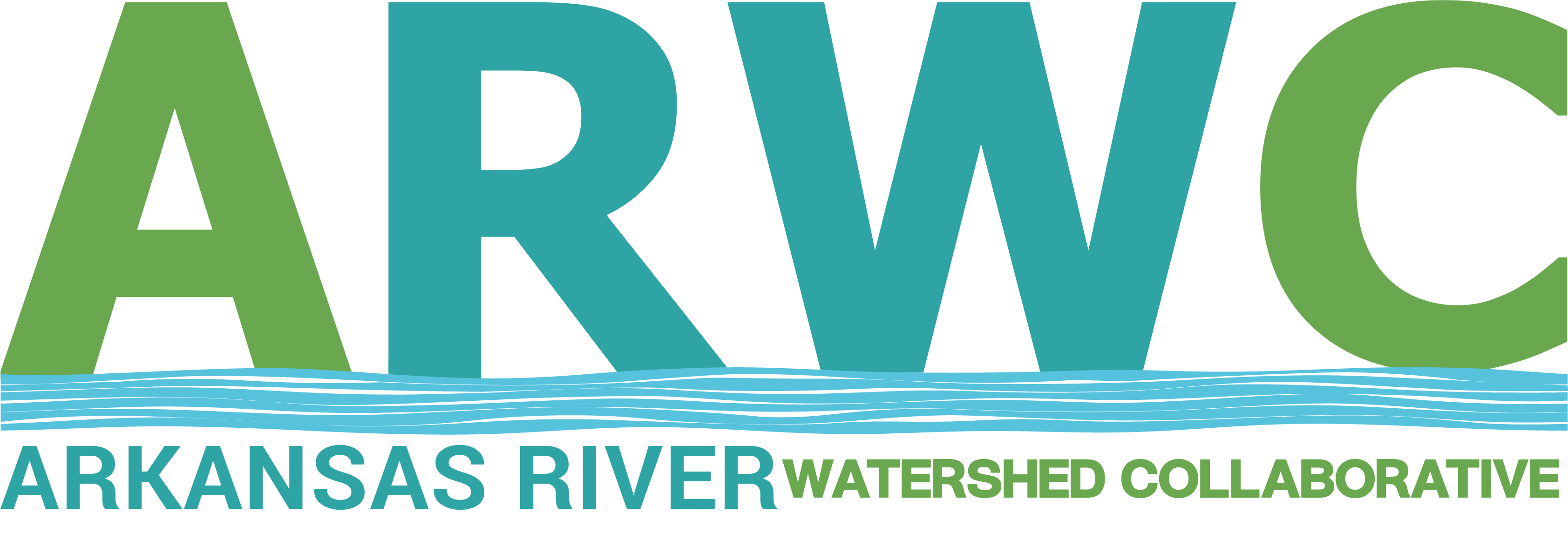For this river report, I (Cecilia, ARWC’s Watershed Resources Intern) spoke with Bob Hamel. Bob Hamel is the executive director of the Arkansas River Outfitters Association and serves as vice chair (nonconsumptive) of the Arkansas Basin Roundtable and chairman of the environment/recreation committee.

1. What is your role with the roundtable and how did you end up in that position?
I represent recreation. I’m in the at-large recreation representative position and with that I because we have like kind of like two branches right we We have Jeff DeHerrera, who’s the vice chair of that arm, and I vice chair the roundtable for the non-consumptive users, of which there’s just us and the environmental folks. So, much smaller on my little team.
2. How long have you been in that position?
Seven or eight years.
3. What does that position entail?
With that position, I also chair the Environmental Recreation Committee. We meet every other month or so and then report back to the roundtable to bring the voice of recreation. My main job is executive director with the Arkansas River Outfitters Association, and because I work with them, the round table fell into my lap, basically. It’s something that I can participate in and represent recreation, the boating community. Because I work with the outfitters and our interest in the roundtable is to making sure we have water and we work on building partnerships with the water community to help support the Voluntary Flow Management Plan, an augmentation plan that gives us potential to have water added to the river from July 1st to August 15th to get us to 700 CFS. In the years that I’ve been doing the roundtable, we’ve built these partnerships which are really solid now with people like from Pueblo, Board of Water Works, Allen Ward, they really understand what we need and how they can help us.
They’ve helped us move water to supplement the water that’s in the VFMP through the Bureau of Reclamations program. Water is complicated here.
4. During your time doing this work, how have you seen the conversation around water management in the basin evolve?
Oh, it has changed big time. There’s a lot of transparency now, and the acknowledgement of the importance of water quality and watershed health. That is in part due to you all (ARWC), and the well supported projects that you have facilitated. It’s pretty cool to watch the whole conversation, and resulting actions, develop.
It has also changed because people managing water in the valley acknowledge the recreation communities existence and are willing to help us, as opposed to just doing what they need to do whenever they need to do it without referring to us. It benefits the whole boating community when they are willing to make movements of water at times that are beneficial to us
In the last two years prior to this year, Pueblo has moved ~6,000 acre feet of water each year during the flow program time frame to help us extend the amount of water we had available to maintain that 700 CFS. They did not have to do it. They could have moved it before or waited until after or moved it in the winter or whatever, but they’re like, hey, we got this water to move one will be a good time to move it. Well As we expressed, you know what our time frame is and July 1st, August 15th, they had it they were willing to do it. It’s been incredible, actually, in the last eight years.
5. Now that the Voluntary Flow Management Program has come to a close, what are you thinking about come fall and winter?
I chair the committee of the Arkansas River Basin Water Forum. We have begun planning for our annual event.. We do a four-city rotation. In March 2025, March, we’ll be in Pueblo. And then we go to Salida, and then Colorado Springs, and back to La Junta. Each session is a little more focused on what’s going on around those towns. We focus on municipality needs when we’re in Colorado Springs. In Pueblo and La Junta, we talk a lot about agriculture and then a little more with recreation and ranching when we’re in the upper basin in Salida. So it’s an opportunity for us to be one-on-one with people for a couple days to be able to talk about what local needs are.
Things have evolved in these last eight years with the water community and just understanding what each other is doing helps us balance between agriculture, recreational, environmental and municipality needs.
